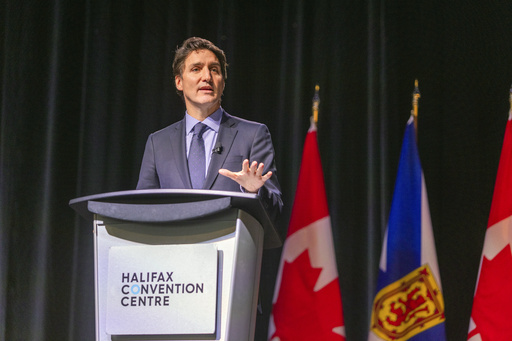TORONTO — Ontario, Canada’s largest province, is contemplating a number of potential retaliatory measures against the United States should President-elect Donald Trump implement widespread tariffs on Canadian goods. Among the proposals being considered is the restriction on the purchase of American alcohol by the province’s liquor control board. Additionally, the Ontario government is looking at curbing exports of essential minerals used in electric vehicle batteries and limiting American companies from participating in provincial procurement processes. These discussions were revealed by a high-ranking official within Premier Doug Ford’s administration, who requested anonymity due to the sensitive nature of the situation.
On Wednesday, Ford acknowledged the province’s potential restrictions on electricity exports to the states of Michigan, New York, and Minnesota, reiterating on Thursday that this could lead to increased electricity costs for Americans. He emphasized communication with Michigan’s governor, Gretchen Whitmer, and described the drastic measures as a “last resort.” Ford expressed his hope that President Trump would reconsider his approach, stating that any attack on Ontario would be met with strong defensive actions from the province.
Amidst these developments, Trump has threatened to impose a 25% tariff on all imports from Canada and Mexico unless they take steps to control migration and drug trafficking. Ontario supplied power to approximately 1.5 million American homes in 2023, and the ramifications of such tariffs could be significant. Trump commented on Ford’s statements during a CNBC interview, downplaying the impact of possible actions from Ontario by asserting that the U.S. should not be subsidizing Canada.
Despite the tensions, Trump conveyed a desire to resolve the issues, which Ford acknowledged. He remarked that the path to a solution involves ensuring that Prime Minister Justin Trudeau bolsters border security and increases military spending in line with NATO commitments. In contrast, Alberta’s Premier Danielle Smith firmly stated that her province would not halt oil exports, instead opting for a diplomatic route to advocate for Alberta’s oil and gas as critical resources for energy affordability and security.
Canada is the primary oil supplier to the U.S., with nearly 4.5 million barrels per day being exported. In Ford’s view, imposing a 25% tariff on Alberta’s oil could lead to significant increases in gas prices for American consumers. Beyond oil, Canada is also responsible for around 85% of electricity imports into the U.S. Furthermore, Canada harbors crucial minerals and metals that are vital to the Pentagon.
Daily cross-border trade between Canada and the U.S. reaches nearly 3.6 billion Canadian dollars, establishing Canada as the leading export partner for 36 U.S. states. In response to Trump’s concerns regarding border security, Canada has pledged to allocate more resources to border enforcement, with Ontario ready to assist by supplying additional personnel and technology to support the Canada Border Services Agency.
Public Safety Minister Dominic LeBlanc, who recently dined with Trump, indicated that they plan to present their border security proposals to the incoming administration shortly. In Alberta, a new sheriff’s patrol unit is being established to include surveillance drones and detection dogs aimed at enhancing security measures.
During the Mar-a-Lago dinner, discussions also touched on the U.S. trade deficit with Canada, which amounted to $75 billion last year, a significant portion of which comprises energy exports. Trudeau has warned that any tariffs imposed by the U.S. could devastate Canada’s economy while concurrently harming Americans.
Canadian officials contend that it is unjust to group Canada with Mexico regarding illegal immigration and drug importation issues. LeBlanc pointed out that illegal crossings from Canada represent only a small fraction of total U.S. figures. Quebec Premier Françoise Legault acknowledged discussions with Trump on this matter, expressing a preference for strengthened border security measures over escalating trade disputes. Newfoundland’s Premier Andrew Furey highlighted unease on both sides of the border and expressed hope that the situation would not escalate into a trade war.




